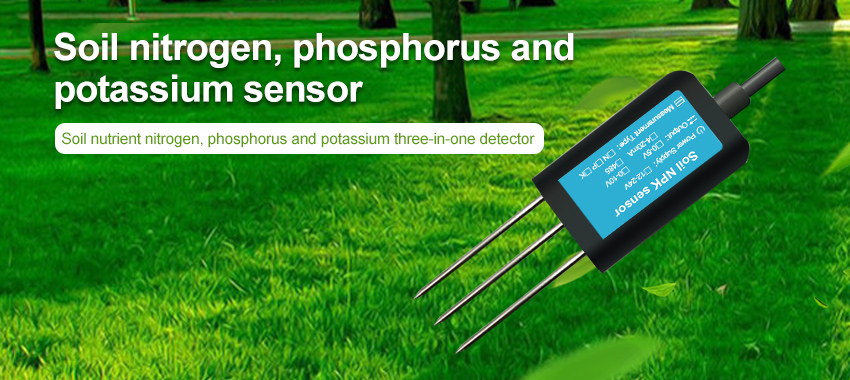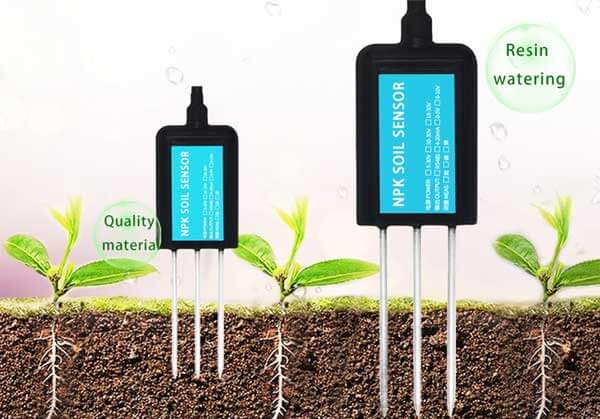Agriculture has been a fundamental part of human civilization for thousands of years, providing sustenance and livelihoods for people around the world. Over time, the practice of farming has evolved to meet the growing demands of a rapidly increasing global population. One of the most significant advancements in modern agriculture is the development of precision farming, which utilizes technology to optimize crop production and minimize environmental impact. Soil sensors play a crucial role in precision farming, providing farmers with valuable data to make informed decisions about soil management, irrigation, and fertilization.

Precision farming, also known as precision agriculture, is a farming management concept that uses technology to monitor and control various aspects of crop production. This approach allows farmers to tailor their practices to the specific needs of their fields, leading to increased efficiency and productivity. One of the key components of precision farming is the use of soil sensors, which are devices that measure and monitor various soil parameters such as moisture levels, temperature, nutrient content, and pH.
Soil sensors are essential tools for precision farming as they provide farmers with real-time data about the condition of their fields. By understanding the specific characteristics of their soil, farmers can make informed decisions about when and how much to irrigate, fertilize, and plant. This level of precision allows farmers to optimize their inputs, reducing waste and minimizing environmental impact. In addition, soil sensors can help farmers identify areas of their fields that may require special attention, such as areas with poor drainage or nutrient deficiencies.
One of the most significant benefits of soil sensors is their ability to improve water management in agriculture. By accurately measuring soil moisture levels, farmers can determine when and how much to irrigate, ensuring that crops receive the right amount of water at the right time. This not only conserves water but also prevents over-irrigation, which can lead to waterlogging and nutrient leaching. In regions with limited water resources, such as arid and semi-arid areas, soil sensors are invaluable for maximizing the efficiency of irrigation systems and reducing water waste.
Soil sensors also play a crucial role in optimizing nutrient management in agriculture. By monitoring nutrient levels in the soil, farmers can apply fertilizers more precisely, ensuring that crops receive the necessary nutrients without over-application. This not only saves costs for farmers but also reduces the risk of nutrient runoff, which can pollute water sources and harm the environment. Additionally, soil sensors can help farmers identify areas of their fields that may have nutrient deficiencies, allowing them to target their fertilization efforts more effectively.
In recent years, advancements in sensor technology have led to the development of more sophisticated and accurate soil sensors. These sensors can provide farmers with detailed information about soil characteristics at different depths and locations within their fields, allowing for a more comprehensive understanding of soil variability. This level of precision enables farmers to implement site-specific management strategies, tailoring their practices to the specific needs of different areas within their fields.
The integration of soil sensors with other precision farming technologies, such as GPS and remote sensing, has further enhanced the capabilities of precision farming. By combining data from soil sensors with information about crop health, weather patterns, and topography, farmers can gain a comprehensive understanding of their fields and make informed decisions about their farming practices. This integrated approach allows farmers to optimize their production while minimizing environmental impact, ultimately leading to more sustainable and efficient agriculture.

In conclusion, soil sensors play a critical role in transforming agriculture through precision farming. By providing farmers with real-time data about soil conditions, soil sensors enable them to make informed decisions about irrigation, fertilization, and soil management. This level of precision not only improves the efficiency and productivity of crop production but also minimizes environmental impact. As technology continues to advance, the capabilities of soil sensors in precision farming will only continue to grow, leading to more sustainable and productive agriculture for the future.
